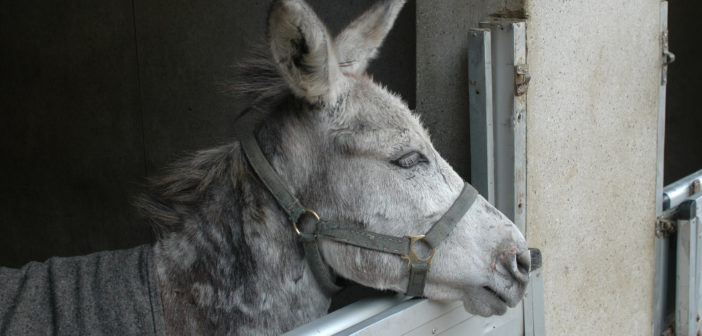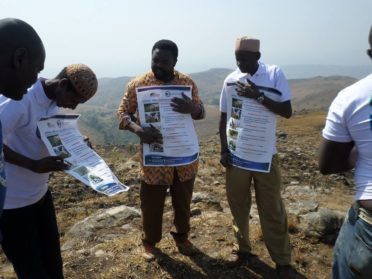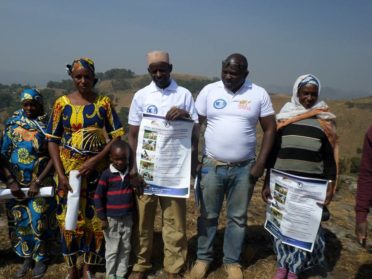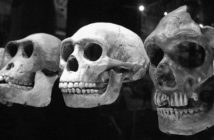Horses, donkeys, camels and cattle have been used for riding and pack transport in parts of sub-Saharan Africa for millennia. Additionally, a large proportion of the population depends on agriculture for their livelihoods, and working equines perform much of the hard labor in this sector. Equines are also used in rural areas to transport water and people, and in cities to transport people, construction materials and general merchandise.
In semi-arid and arid areas, food security and livelihood problems frequently undermine communities’ abilities to provide consistent care for working equines. When rainfall is limited, working equines are often the first to experience reduced feed and water.
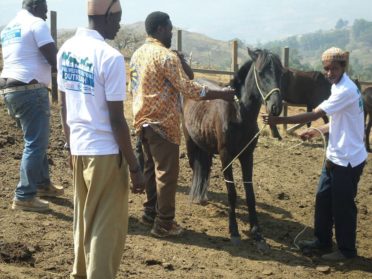
Horses were inspected for health issues and education about their care was provided during OIPA’s visit. Image credit OIPA Cameroon.
Many working equines are affected by poor welfare, including poor body condition, foot-related problems, and body lesions (often due to inadequate harnesses and beating), as well as behavioral issues such as fear and aggression. Ectoparasites also represent a significant health threat, as these animals graze permanently on free range and pasture, which is rarely treated, thereby exposing them to frequent infestations.
In the Northwest region of Cameroon, where OIPA volunteers are working on many animal welfare interventions, most working animals are owned by Fula people. This ethnic group has low education rates, which can act as a barrier to providing appropriate care to working animals. Furthermore, people in this region are much more concerned about the welfare of their cows, who are seen as income generating animals. Horses and donkeys are often left to suffer and die because of the financial burden of treating them. In fact, quite often, equine neglect and abuse cases originate from a lack of the economic resources needed to adequately maintain their health.
Through a SPANA-funded project, OIPA Cameroon had the opportunity to educate the public about the proper treatment of working equines. This small-scale educational project aimed to pass on a message of compassion and caring for animals to present and future generations. Horse and donkey owners were given educational materials with illustrative pictures on the five freedoms (freedom from hunger and thirst, freedom from discomfort, freedom from pain, injury and disease, freedom to express normal behavior and freedom from fear and distress).
The project also included the treatment of over 25 equines who received broad-spectrum antibiotics and wound care. This was an important activity, during which the owners had the opportunity to learn how to improve the living conditions and health of their working animals. Many of the working animals assessed by OIPA volunteers were found in very poor physical condition. OIPA will continue working with farming communities to improve their animal welfare management.
We wish to thank SPANA for supporting OIPA’s work to help and protect working animals in Cameroon.
Featured image: A donkey at The Donkey Sanctuary in Egypt. Working equines all over the world are often subjected to poor conditions, especially when poverty acts as a barrier to appropriate care. Image credit Kim Bartlett – Animal People, Inc.

